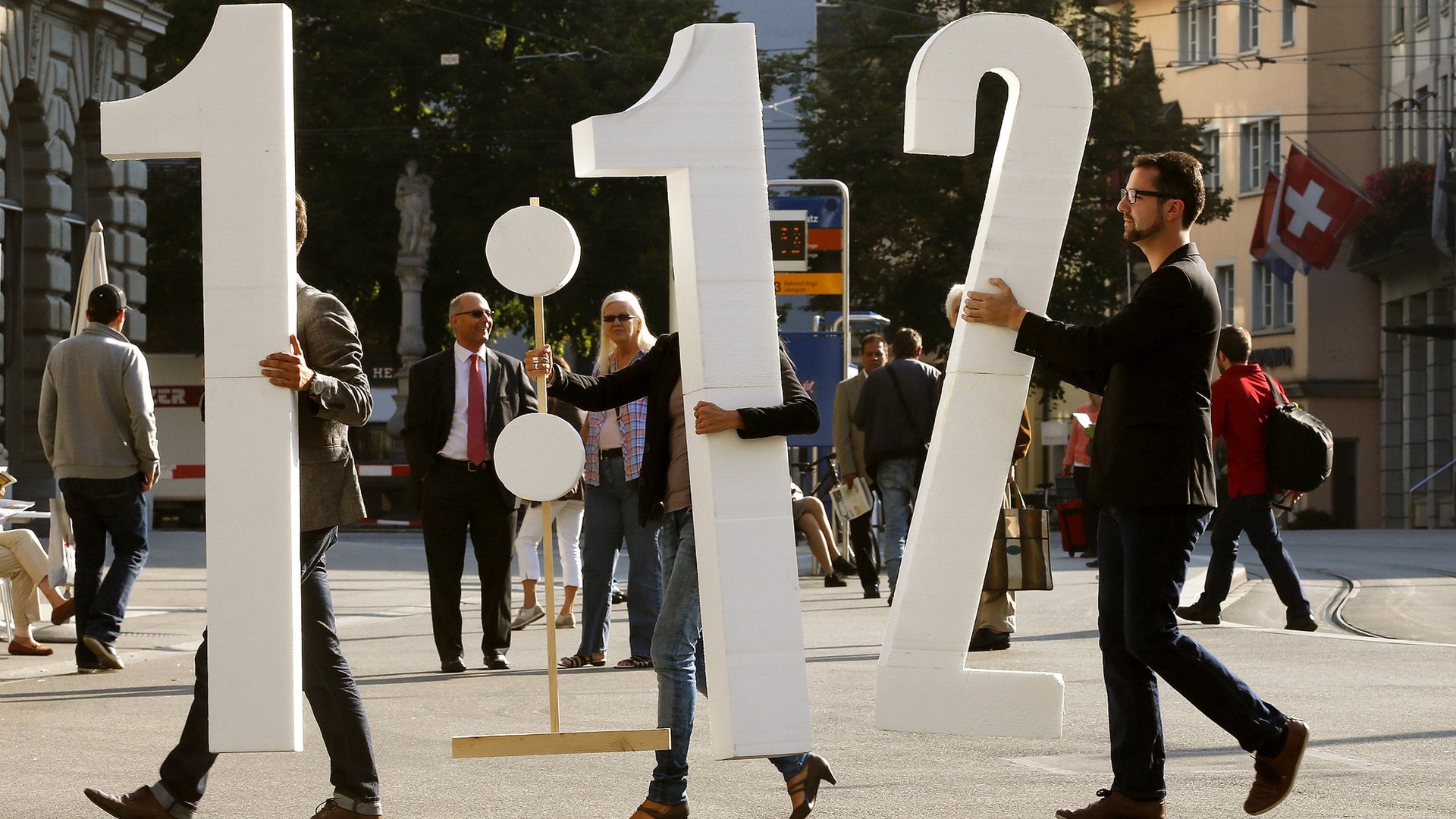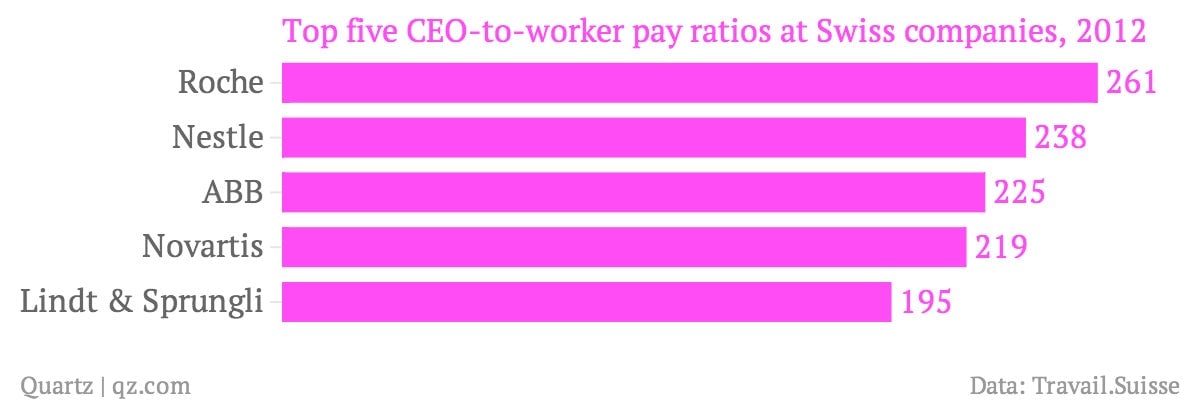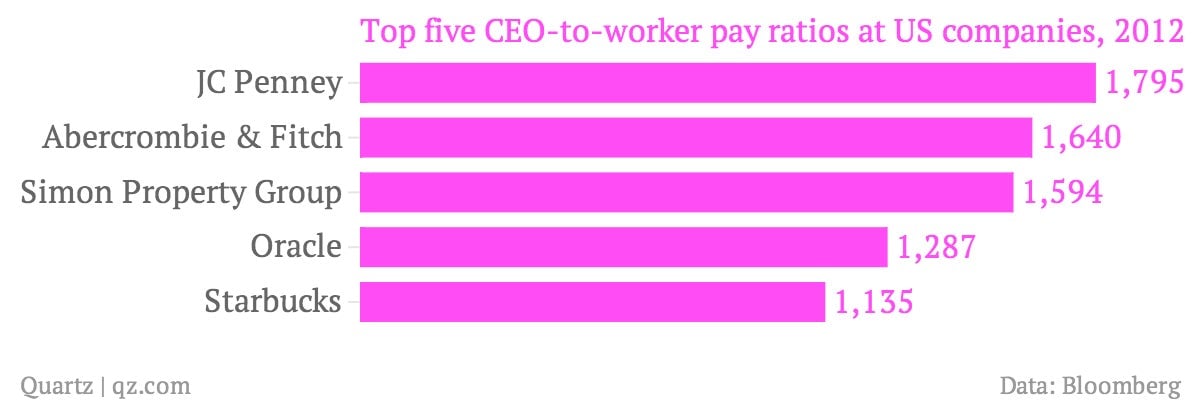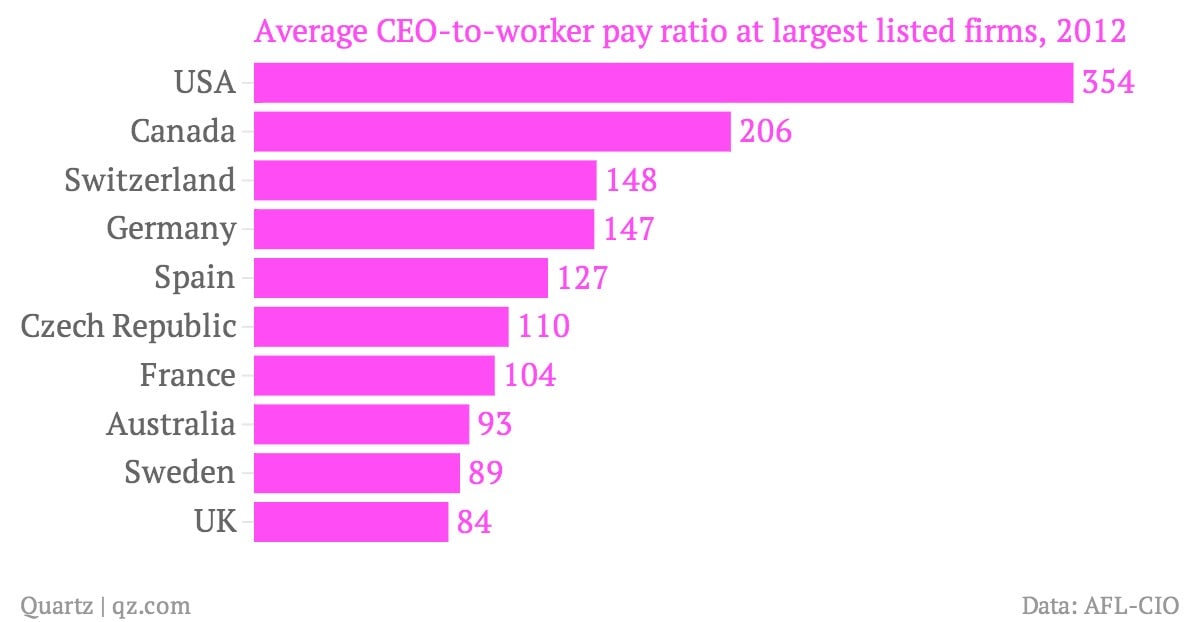Some Swiss firms pay CEOs 200 times more than workers, and voters are cool with it
Swiss voters yesterday rejected a proposal to cap the pay of top executives to no more than 12 times that of the lowest-paid workers. And they did so resoundingly: around two-thirds of voters opposed the measure in a referendum, with a relatively high turnout of more than 50% of the electorate.


Swiss voters yesterday rejected a proposal to cap the pay of top executives to no more than 12 times that of the lowest-paid workers. And they did so resoundingly: around two-thirds of voters opposed the measure in a referendum, with a relatively high turnout of more than 50% of the electorate.
That came as something of a surprise. At the beginning of October, opinion polls (link in German) suggested that citizens were evenly split on the initiative. And back in March, in another referendum, the Swiss had voted by a wide margin for some of the strictest rules on executive pay in the western world: a ban on executive signing bonuses and severance packages, a binding vote for shareholders on executive compensation, and a host of other measures hostile to high pay. But the “no” camp on the 1:12 referendum had gained momentum in recent weeks, as business lobbyists and the federal council warned that the country might lose competitiveness and tax revenue if the measure passed.
In both absolute and relative terms, Swiss executives are among the highest-paid in Europe. The “yes” campaigners in the referendum noted that the average ratio between the top and bottom earners in Switzerland has grown from 6-to-1 in 1984 to 43-to-1 today. The ratios between the CEO and rank-and-file staff at the country’s largest listed firms, meanwhile, go well above 200-to-1:

This is undoubtedly generous, but nowhere near the largesse enjoyed by top American executives in relation to the rank and file, some of whom make more than 1,000 times the lowest-paid workers:

The European Union has introduced caps on bankers’ bonuses, while other countries, like France, imposed limits on CEO-to-worker pay ratios at state-owned firms. The Swiss referendum, if passed, would have applied to a much wider range of companies. Switzerland is often cited as an example by campaigners for corporate pay and governance reform; it has some of the world’s toughest rules on bank liquidity and capitalization, for example.
So the vote is a relief for companies and business-friendly governments elsewhere. In the US, a proposal for companies simply to disclose the ratios between the top and bottom earners is generating controversy. The Swiss vote is unlikely to affect this debate, but supporters of a light touch on executive pay rules will take solace from the fact that a country with a large pay gap and a history of populist measures against high pay has stopped short of imposing hard limits.
